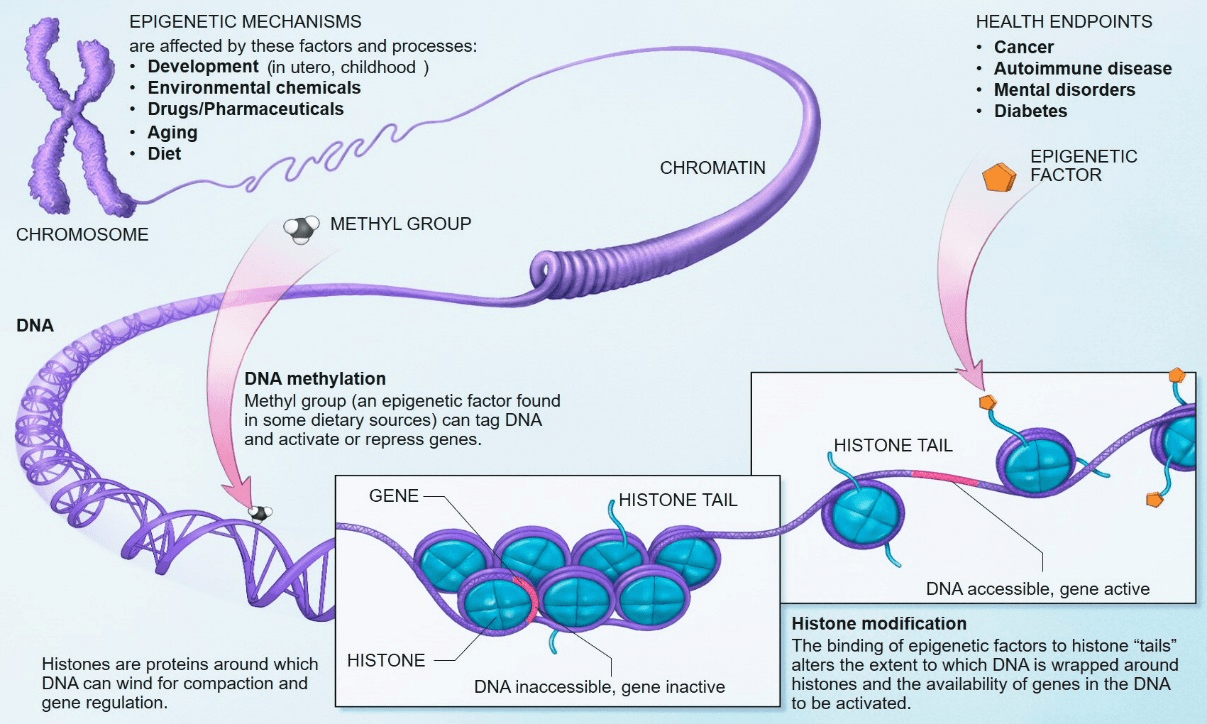The Science of Epigenetics
Once you know your genotypes, you will be able to make necessary lifestyle changes whether it is altering your food habits and knowing which foods you should eat more (food that your body lacks) and which foods you must control and if possibly avoid (that your body is allergic, intolerant and sensitive to) along with how can you achieve ideal body weight and increase energy and fitness levels with enhanced metabolism. Gene Wise has been successfully unleashing the benefits of this beautiful science of Nutrigenomics since 2016.
Epigenetics is defined as the study of heritable changes in gene expression that occur without a change in the DNA sequence i.e., changing the phenotype without changing the genotype. In simple words, this means that there is another level of genetic control in addition to a person’s DNA sequence which determines which genes are turned off and which are turned off. Having an expertise in knowing how to arrive at a desired gene expression by knowing one’s genetic sequence plays a major role in curating a scientific gene-based wellness solution.
Epigenetic changes can either be inherited or accumulated throughout a lifetime. Epigenetics Controls Genes. This is achieved through ‘Nature’ i.e., it is epigenetics that determines a cell’s specializationas a foetus develops into a baby through gene expression (active) or silencing (dormant) as well as ‘Nurture’ i.e., environmental stimuli that can cause genes to be turned off or turned on.

It is epigenetics that makes us unique. Even though we are all human, why do some of us have blonde hair or darker skin? Why do some of us hate the taste of mushrooms or eggplants? Why are some of us more sociable than others? The different combinations of genes that are turned on or off is what makes each one of us unique. Furthermore, there have been indications that some epigenetic changes can even be inherited. Epigenetics is everywhere. What you eat, where you live, who you interact with, when you sleep, how you exercise, even aging – all of these can eventually cause chemical modifications around the genes that will turn those genes on or off over time. Additionally, in certain diseases such as cancer or Alzheimer’s, various genes will be switched into the opposite state, away from the normal/healthy state.

